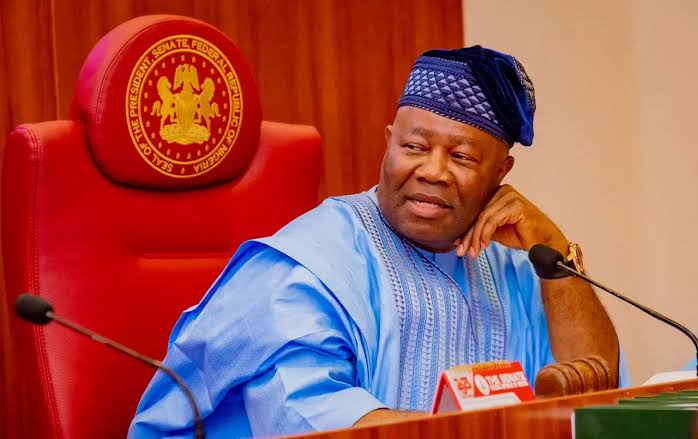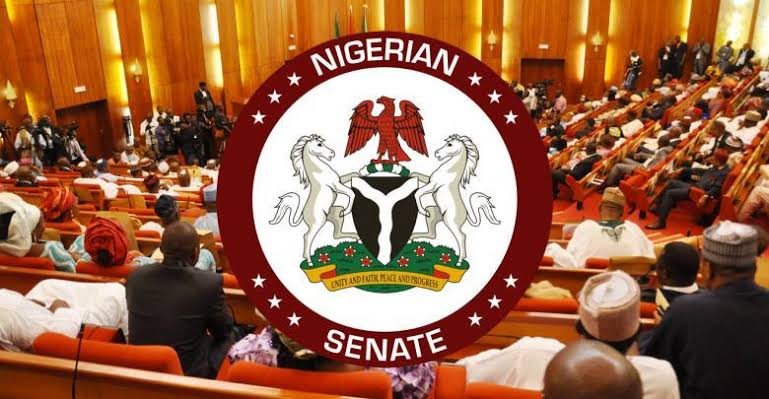Physical Address
60 Ekwema Cres, Layout 460281, Imo
Physical Address
60 Ekwema Cres, Layout 460281, Imo

The Nigerian Senate has taken a great leap toward regulating the country’s cyber space with a proposed bill that makes it mandatory for social media companies and bloggers to open physical offices within Nigeria. This legislative step, which advanced through its second reading on Tuesday, is designed to bring about accountability, adherence to local law, and economic returns.
The legislation, whose technical title is “A Bill for an Act to Amend the Nigeria Data Protection Act, 2023, to Mandate the Establishment of Physical Offices within the Territorial Boundaries of the Federal Republic of Nigeria by Social Media Platforms, and for Related Matters, 2025 (SB. 650),” was sponsored by Senator Ned Nwoko representing Delta North. It seeks to amend the existing Nigeria Data Protection Act, which was passed into law in 2023, by plugging loopholes in how multinational digital companies do business in Nigeria.
Senator Nwoko highlighted Nigeria’s unique position as Africa’s most populous nation with over 220 million people and one of the highest social media usage rates globally. Nigerians spend three hours and 46 minutes a day on social media platforms like Facebook, X (previously known as Twitter), Instagram, TikTok, and YouTube, according to a Global Web Index. Though gigantic is the usage, none of these platforms have an office in Nigeria—a phenomenon the Senate social media bill for social media platforms and bloggers aims to change.

The bill requires social media platforms and bloggers to have verifiable offices within Nigeria’s territorial boundaries. For bloggers, it also demands that they keep proper employee records and be members of a recognized national association with its headquarters in Abuja. The objectives of the bill are to enhance user support services, promote compliance with Nigerian laws, ease tax collection, and spur economic growth through employment and investment.
During the course of discussing the bill in the Senate, Senate President Godswill Akpabio clarified that the bill was not to suppress free speech but to provide for transparency and accountability. He further stated that appropriate taxation and record-keeping would be guaranteed if physical offices were established for digital companies doing business in Nigeria. But he conceded that blogging may require more subtle considerations considering its typically independent nature.
The Senate bill on bloggers and social media companies to open physical offices has been referred to the Senate Committee on ICT and Cyber Security to be re-examined. The committee will conduct a public hearing within two months to listen to opinions from stakeholders before it submits its report for further legislative procedures.
If enacted into law, this bill can transform Nigeria’s digital landscape. Proponents argue that requiring physical offices will enable better monitoring of social media platforms and bloggers and spur local economic activity. Critics have, however, raised concerns over potential operational costs for multinationals and freelance bloggers. They argue that these requirements will lead to reduced services or added costs for consumers as well as creating logistical problems for smaller players.
Read Next: A New Submarine Cable, Medusa, is Being Developed to Lower Telecoms Expenses in West Africa
This is not the first attempt by Nigeria to regulate its virtual space. Another similar move under the ninth Senate was attacked for looking like a restriction on freedom of speech. But this newest Senate bill aimed at social media and bloggers addresses itself as an economic policy rather than a curb on speech.
As the talks go on, this bill may be a template for other African countries struggling with how to deal with global technology titans inside their countries. Meanwhile, all eyes are on the future public hearings that will determine the final shape of this potentially game-changing legislation.
Was this information useful? Drop a nice comment below. You can also check out other useful contents by following us on X/Twitter @siliconafritech, Instagram @Siliconafricatech, or Facebook @SiliconAfrica.